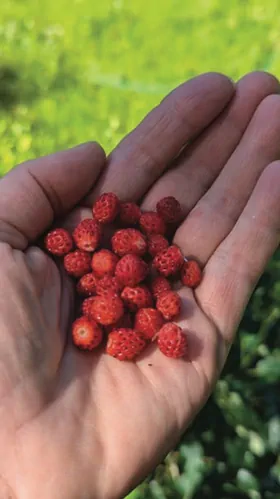Chapter 178
Here we go again. It’s a delightful month, delicious time, great to be alive! Spring is finally in full bloom here in Alberta and the long-dormant flowers and plants of summer are yet again making their miraculous come-back. Every year it’s like it never happened. I am awaiting the full blossoming of the Alberta Wild Roses along the roadsides and hillsides in the coming weeks. Such a glorious sight.

I wish more folk in this gorgeous part of the world placed more emphasis on protection and preservation. It’s dispiriting to see the world heading down the path of prophetic novelists and doom-sayers. The vast quantities of animal and vegetable species that we (we, the human race) are ploughing under on a daily basis on a global scale is frightening. I have to recentre and maintain the outlook of gratitude for the glory all around me here. I’m looking forward to wild strawberries in my garden again.
How different life would be if I was restricted to a concrete box in the midst of one of the concrete and tar jungles in which the vast majority of humankind now exist. We are now up to almost 8 and a quarter billion people on our little blue ball. Our neighbour to the south has the third largest population in the world, although they fall more than a billion short of the top two; India and China. We are 38th on the world stage, over 80% of the Canadian population lives in urban centres without connection to the land or direct daily experience of the natural cycle of life and death, or in many cases, the wild wonderful rush of the changing seasons. Living and working in a city, it’s easy to become disconnected. For several years while I worked in downtown Calgary in a building with next to no windows, I barely saw sunlight. I arrived before the dawn was fully fledged and left well after sunset in the colder months of the year. The advent of Spring would completely pass me by and I wondered why I started to feel peculiar. Lack of fresh air and sunshine will do it.
In the last 50 years, there has been over 70% global decline in wildlife species. In the north Americas, it’s around 40%. We, busy little humans gobbling up the land, have been responsible for the majority of that decline.
We tend to outsource so many things. The current political climate may have caused some who did not previously consider these things, to think about where certain products may come from. The greatest harm is being caused by western countries outsourcing to less affluent places, exploiting natural resources and lower wage levels.
“Habitat loss and degradation and over-harvesting, driven primarily by our global food system are the dominant threats to wildlife populations around the world, followed by invasive species, disease and climate change.”* Habitat loss, overharvesting, invasive species – all directly driven by human interactions and demands.
“Sharp declines in wildlife populations are a clear and urgent warning. These steep drops signal that nature is unravelling and becoming less resilient. When nature is compromised, it is more vulnerable to climate change and edges closer to dangerous and irreversible regional tipping points. When this happens in too many places around the globe, it threatens the very air we breathe, the water we drink, and the food we eat.”**
Thinking Canadian, preserving our resources, using our resources to the best, in sustainable fashion, is vital. We have such an incredible country, we can change the way we live in this country to make it more sustainable for us, our children, our friends both human and otherwise.
It only takes a moment to consider your options. Be kind.
Kat Dancer
bodymudra@gmail.com,
+1 415 525 2630 (ph/whatsapp)
* WWF October 09, 2024
**WWF Chief Scientist Rebecca Shaw























